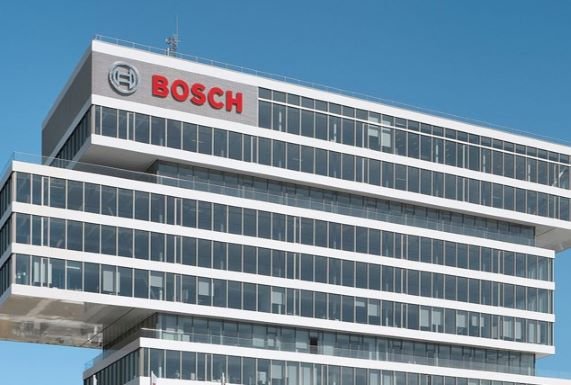Bosch Implements Working Hour Cuts and Layoffs Amid Economic Challenges
Robert Bosch GmbH, one of Germany’s largest employers, has taken significant measures to navigate the turbulent economic climate by cutting the working hours of thousands of its employees. The industrial giant, which employed 429,000 people at the end of 2023, announced on Friday that it would reduce working hours for an additional 10,000 workers. This follows an earlier decision to reduce hours for 450 employees from 38–40 hours per week to 35 hours.
The changes are part of a broader cost-saving initiative aimed at addressing the challenges facing the automotive industry. Bosch’s mobility division, which contributes significantly to its revenue, is undergoing what the company described as a “profound transformation.”
“We must adjust our structures to the changing market environment and reduce costs in the long term to strengthen our competitiveness and make the division fit for the future,” stated Stephan Hölzl, executive vice president for finance and administration in the Cross-Domain Computing Solutions division.
Layoffs Add to Workforce Reductions
The adjustment in working hours comes alongside a series of layoffs. On the same day as the hour reductions were announced, Bosch revealed it would be cutting 5,550 jobs to manage the financial pressures affecting the company. This follows an earlier decision in October to lay off 7,000 employees after Bosch’s chairman, Stefan Hartung, admitted that the company would not meet its financial targets for 2024.
These measures underscore the difficulties faced by Bosch as Germany grapples with its flatlining economy. The country is expected to experience a second consecutive year of negative economic growth, with its manufacturing sector entrenched in a prolonged recession.
Impact of Economic and Sectoral Challenges
Bosch, which generates most of its revenue from its automotive supply business, has been hit hard by the slowdown in the European automotive sector. This downturn has placed additional strain on the company, which manufactures components like brakes and spark plugs for global carmakers.
The challenges facing Bosch are reflective of broader issues within Germany’s export-reliant economy. Rising energy costs, reduced demand in key export markets, and heightened competition from Chinese manufacturers have collectively pressured the country’s industrial sector.
Adding to the uncertainty, potential tariffs under a renewed Donald Trump administration in the U.S. have raised concerns among German carmakers about their competitiveness in international markets.
Germany’s Automotive Industry in Crisis
The challenges at Bosch mirror those faced by other major players in Germany’s automotive industry. Volkswagen, for instance, is currently undertaking a €10 billion cost-cutting initiative. However, the company is struggling to balance workforce reductions and cost management with its powerful labor unions.
Volkswagen’s brand chief executive, Thomas Schaefer, emphasized the urgency of restructuring efforts, telling Welt am Sonntag, “Ultimately, any solution must reduce both overcapacity and costs. We can’t just stick a Band-Aid on it and keep dragging it along. That would come back to bite us later in a serious way.”
A Global Shift in the Automotive Landscape
Bosch’s mobility sector is not the only area undergoing significant transformation. The global automotive industry is shifting toward automated driving solutions and electric vehicles. While Bosch anticipated growth in these areas, demand has not developed as forecasted.
European carmakers are increasingly competing with cheaper Chinese suppliers, further complicating the recovery from pandemic-related disruptions and global supply chain challenges.
What Lies Ahead for Bosch and German Industry?
Despite its annual revenue of €92 billion, Bosch has not been immune to the economic headwinds facing Germany’s manufacturing sector. The workforce reductions and working hour adjustments indicate the scale of the challenges the company must overcome to remain competitive.
The automotive industry, long regarded as the backbone of Germany’s economy, must now navigate a complex landscape of changing consumer preferences, technological innovation, and geopolitical uncertainty.
The measures taken by Bosch, while painful, reflect a broader need for adaptation and innovation across Germany’s industrial base. Whether these steps will be sufficient to weather the storm remains to be seen.
See Also:
New Zealand Overhauls Post-Study Work Visa Rules
Irish Court Awards $257,000 to Nikita Hand in Sexual Assault Case Against MMA Star Conor McGregor
Elon Musk Becomes Richest Person in History as Tesla Stock Soars
——————————————————————————-
It would mean the world to us if you follow us on Twitter, Instagram and Facebook. At Newscazt, we strive to bring you the latest news and stories from India, World, Business, Sports, Entertainment and more. Our team of experienced journalists and writers are committed to delivering accurate and unbiased news and analysis.




